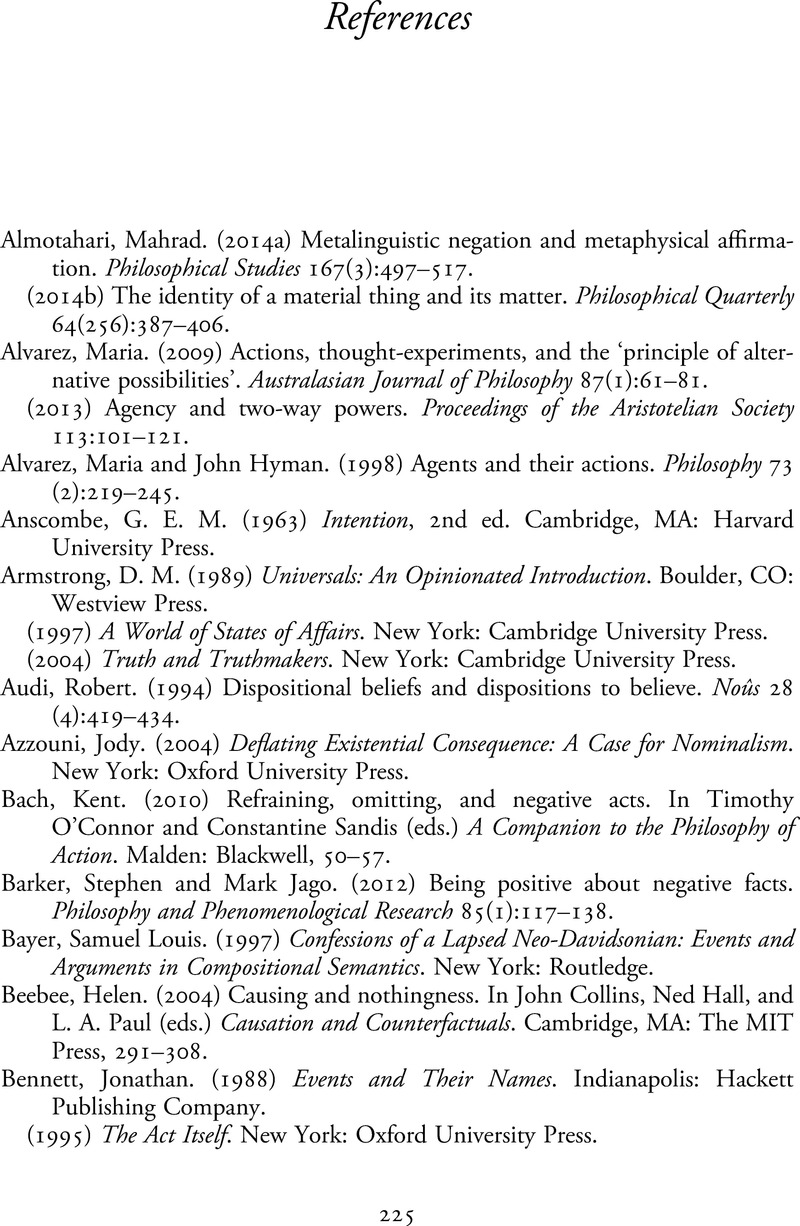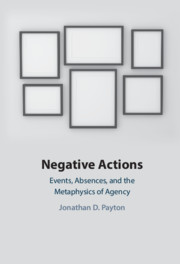Book contents
- Negative Actions
- Negative Actions
- Copyright page
- Contents
- Acknowledgements
- Introduction
- Chapter 1 Action and Ontology
- Chapter 2 The Problem of Negative Action
- Chapter 3 Mere Manifestations of Agency?
- Chapter 4 The Logical Form of Negative Action Sentences I
- Chapter 5 The Logical Form of Negative Action Sentences II
- Chapter 6 The Logical Form of Negative Action Sentences III
- Chapter 7 Realizer-Functionalism and the Metaphysics of Events
- Chapter 8 Objections
- Conclusion
- References
- Index
- References
References
Published online by Cambridge University Press: 11 February 2021
- Negative Actions
- Negative Actions
- Copyright page
- Contents
- Acknowledgements
- Introduction
- Chapter 1 Action and Ontology
- Chapter 2 The Problem of Negative Action
- Chapter 3 Mere Manifestations of Agency?
- Chapter 4 The Logical Form of Negative Action Sentences I
- Chapter 5 The Logical Form of Negative Action Sentences II
- Chapter 6 The Logical Form of Negative Action Sentences III
- Chapter 7 Realizer-Functionalism and the Metaphysics of Events
- Chapter 8 Objections
- Conclusion
- References
- Index
- References
Summary

- Type
- Chapter
- Information
- Negative ActionsEvents, Absences, and the Metaphysics of Agency, pp. 225 - 235Publisher: Cambridge University PressPrint publication year: 2021



